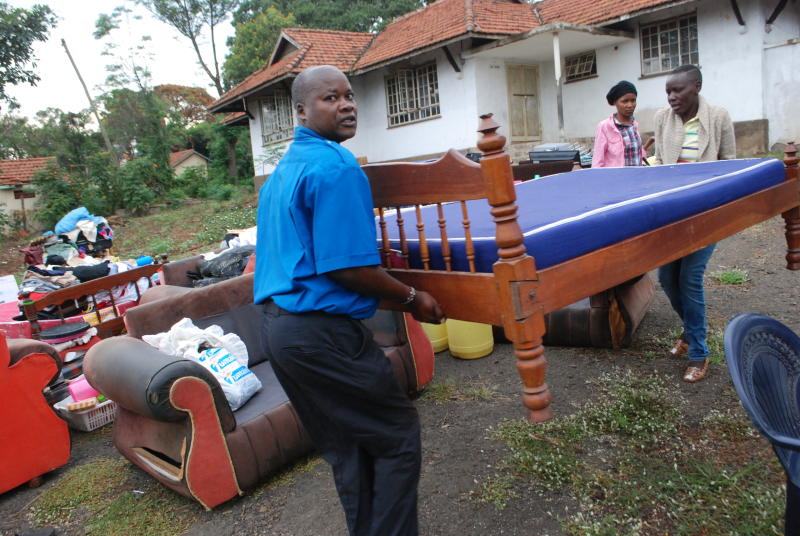×
The Standard e-Paper
Smart Minds Choose Us

Residents of a house owned by Kenya Railways carry away their belongings heaped outside after the expiry of an eviction notice on October 03, 2016 in Kisumu. [Denish Ochieng, Standard]
Landlords who evict tenants or seize their belongings for defaulting on rent could face six months in prison or a fine of up to twice the amount in dispute.